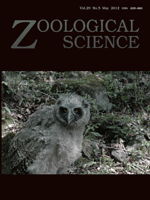Piscidin-1, a 22-residue cationic peptide isolated from mast cells of a hybrid striped bass, has potent antimicrobial activities against both gram-positive and -negative bacteria. To date, there is no report of its antitumor activity on any tumor cell lines. In this study, we examined the antitumor activity of a synthetic piscidin-1 peptide against several human cancer cell lines using an MTS assay and soft-agar colony-formation assay. We found that a low dose of piscidin induces both apoptosis and necrosis in HT1080 cells, as shown by annexin-V/propidium iodide and acridine orange/ethidium bromide staining, and triggers a necrotic cell death pathway in a short period with high-dose treatment. The destruction of cell membranes by piscidin-1 was demonstrated by transmission electron microscopy. Furthermore, piscidin-1 also inhibits the migration of HT1080 cells in a dose-dependent manner. This study provides the first evidence of the anticancer activity of the antimicrobial peptide, piscidin-1, with potential implications for the treatment of cancer.
How to translate text using browser tools
1 May 2012
Piscidin-1, an Antimicrobial Peptide from Fish (Hybrid Striped Bass Morone saxatilis x M. chrysops), Induces Apoptotic and Necrotic Activity in HT1080 Cells
Heng-Ju Lin,
Tsui-Chin Huang,
Sasikala Muthusamy,
Jheng-Fong Lee,
Yeh-Fang Duann,
Cheng-Hui Lin
ACCESS THE FULL ARTICLE

Zoological Science
Vol. 29 • No. 5
May 2012
Vol. 29 • No. 5
May 2012
antimicrobial peptides (AMPs)
apoptotic activity
cytotoxicity
necrotic activity
piscidin-1




